Dog Sleeping In Bed? The Perks, The Pros & The Perils
Co-sleeping with dogs can have benefits (and downsides) for us and our furry friends. So here are 2 steps you can take to decide whether your dog sleeping in bed with you is a good idea.
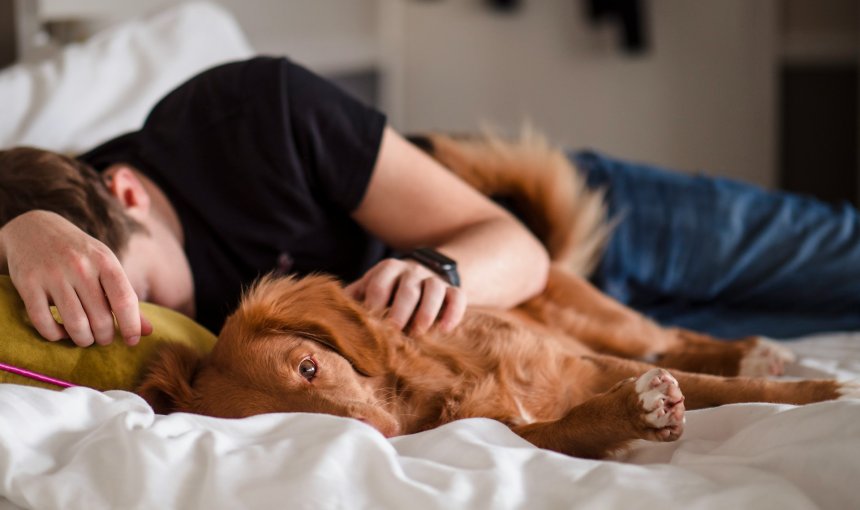
Fact: Your dog loves being close to their favorite human (that’s you). Also fact: You love snuggling up with your dog. But is it the best idea to have your dog sleeping in bed with you? Here are all the perks and perils of sleeping with dogs, so you can decide whether letting your dog(s) sleep in bed is right for you. (Like ensuring they’re getting enough sleep – including good-quality sleep. So you can more quickly intervene if you notice something out of the ordinary.)
Key Takeaways
Co-sleeping has benefits and downsides
Sleeping with your dog can provide a sense of warmth, reduce anxiety, and boost oxytocin. However, it can also lead to issues like bringing dirt or allergens into the bed, or a dog becoming territorial.
Some dogs might be better off sleeping elsewhere
Like, for example, dogs that haven’t been house-trained, sick dogs, or ones adjusting to a new home.
A smart dog tracker can help you monitor your dog’s sleep
Your Tractive device helps you better understand your dog’s nightly habits, sleep quality, and even vital signs. So you can take a proactive role in their health and wellbeing.

Always know your buddy is healthy & safe
Read moreA brief history of (co-)sleeping with dogs
Dogs and humans have been sleeping together for centuries, across cultures1. It’s an ancient practice. Back in the day, domesticated dogs would share sleeping quarters with their early human guardians. And in return, protect and alert them to predators or danger. Plus, they helped us keep warm at night in a time when home heating options were…. limited. Over the centuries, this human-dog bond helped humans (and dogs) survive through difficult times, including cold weather.2
Some anthropologists even think the urge to sleep close to one another (both for dogs and humans) might actually be stored in our DNA.3 Just imagine a toddler cuddling and dozing off with a four-legged friend. It happens almost automatically, right? In short, there’s nothing more natural than wanting to curl up with your pup.
💡A smart dog tracker like Tractive can help you monitor your dog’s sleep quality and even vital signs during nighttime. A change in either of these could be a potential red flag – but now you’ll be ready to spot it earlier.
Where a dog sleeping in bed can be a great idea
Sharing your bed with your dog can be good for you, despite what your friends say. And you would be far from alone. One American Kennel Club study found that 45% of people welcome their dog into their bed.4
Here are just some of the benefits of sleeping with your dog:
- Cold feet? Not anymore, with a doggo curled up next to your toes. Remember, sleeping with a dog can help us stay warm at night.
- Feeling anxious? Sharing the bed with your dog can have a calming effect.
- Want to feel that fuzzy feeling? Co-sleeping boosts oxytocin (a.k.a. “the love hormone”) which strengthens the bond between you and your dog.
- Feeling uneasy? Sleeping with your dog can help you feel more secure. Plus, they can alert you if they sense something out of the usual.
- Still need convincing? You get to wake up every day with your best friend.
Just watch out: once you invite your dog to your bed, it might not be easy to take back that invitation. You’ll also want to teach your dog where to sleep in the bed, so that you can both be comfortable.
Where a dog sleeping in bed might be a not-so-great idea
Sleeping with a dog can also get messy. Here’s a few reasons why not to let your dog get in your bed:
- Your dog will likely bring hair, dirt, dust, and other allergens into bed with them.
Not good if you have allergies. Letting your dog sleep in bed could also increase your exposure to zoonotic diseases or parasites, like ticks. - They may interfere with your sleep cycle
Dogs have different sleep schedules, and might end up waking you up at odd hours. If you’re already a light sleeper, or have insomnia, sleeping with your dog may not be the best for you. - Sick dogs, puppies, new dogs, or dogs who are not yet house trained yet are not the best candidates for sleeping in bed
You don’t want an unexpected wet surprise at 3 in the morning! (Find out how to get the stain out if your dog does pee on your mattress…)

- Some dogs may become territorial about their spot in the bed
Set clear boundaries around where you sleep, especially if your dog shows signs of aggression or dominance. - If you or your dog have an open wound or illness, disease transmission could be a risk (although this is very rare).
- Like a small child, your furry friend could fall off the bed and injure themselves.
If any of these factors cool you off from the idea of sleeping with your dog, it might be best to choose another spot for your dog.
Why your dog wants to sleep in bed with you
As pack animals, dogs satisfy their instinct for safety and comfort by staying close to their pack mates. They may also feel the instinct to guard you at night. Dogs are also instinctive cuddlers – snuggling up to you helps them releases oxytocin, the love hormone we mentioned earlier5. It’s especially important for dogs that suffer from separation anxiety, who calm themselves when they get to sleep in bed with you. In fact, the myth that separation anxiety or aggression in dogs is caused by co-sleeping is just that. A myth.
Where monitoring your dog’s sleep can come in handy
Now no matter whether you want your dog sleeping in bed with you or not – it’s important they get a good night’s rest. Because with enough sleep (and high-quality sleep at that) – your dog stays happy and healthy for the long run. If you’re noticing them twitching in their sleep or waking up repeatedly, they might not be getting the sleep they need to stay healthy. Over time, a drop in your dog’s sleep quality can signal a major red flag for worse health issues down the line.
And the bad news? If your dog is consistently sleeping poorly…over time, you will too. Plus, left untreated, sleeping poorly can worsen your dog’s health over time.
Where a smart dog tracker can help
While the idea of letting your dog sleep in bed with you is a heartwarming one, it’s also important to be mindful of their health and well-being. This is where a smart dog tracker like Tractive, can provide invaluable peace of mind. With its advanced Health Monitoring features – and your dog sleeping so close – you’ll better understand their nightly habits and overall health.
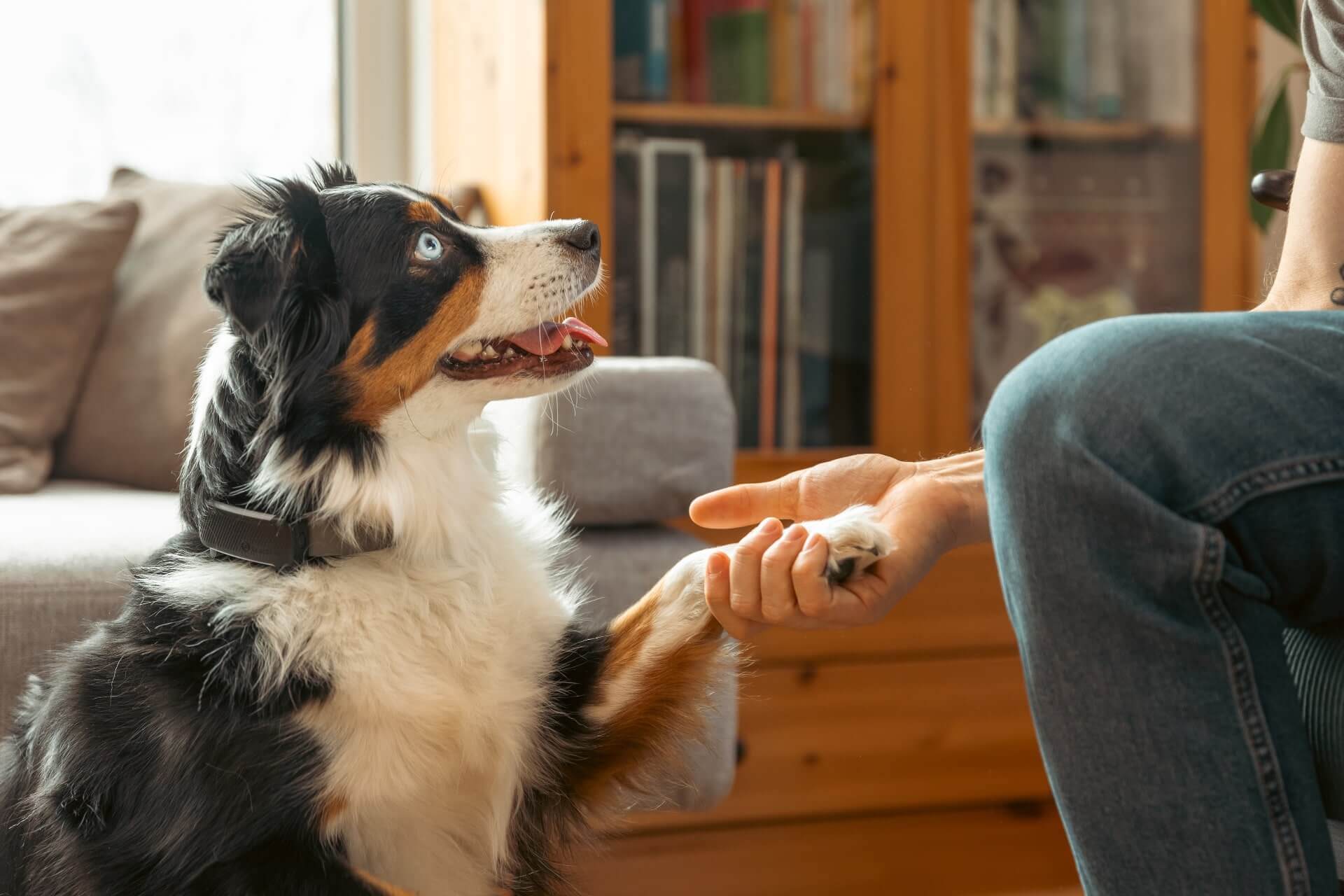
With Sleep Tracking, you can catch on to changes in your dog’s sleep patterns. If you see that your pup is restless or waking up more frequently, it could be a sign of discomfort, pain, or an underlying health issue.
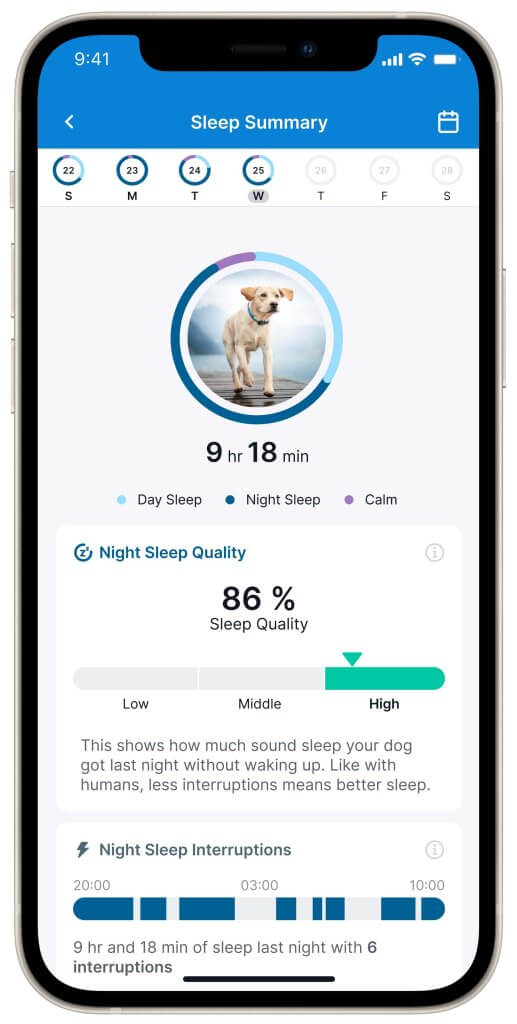
Your tracker also monitors vital signs, such as breathing patterns, and can provide Health Alerts if it detects any significant deviations from their baseline. These early warnings can be crucial in catching potential problems before they become serious.
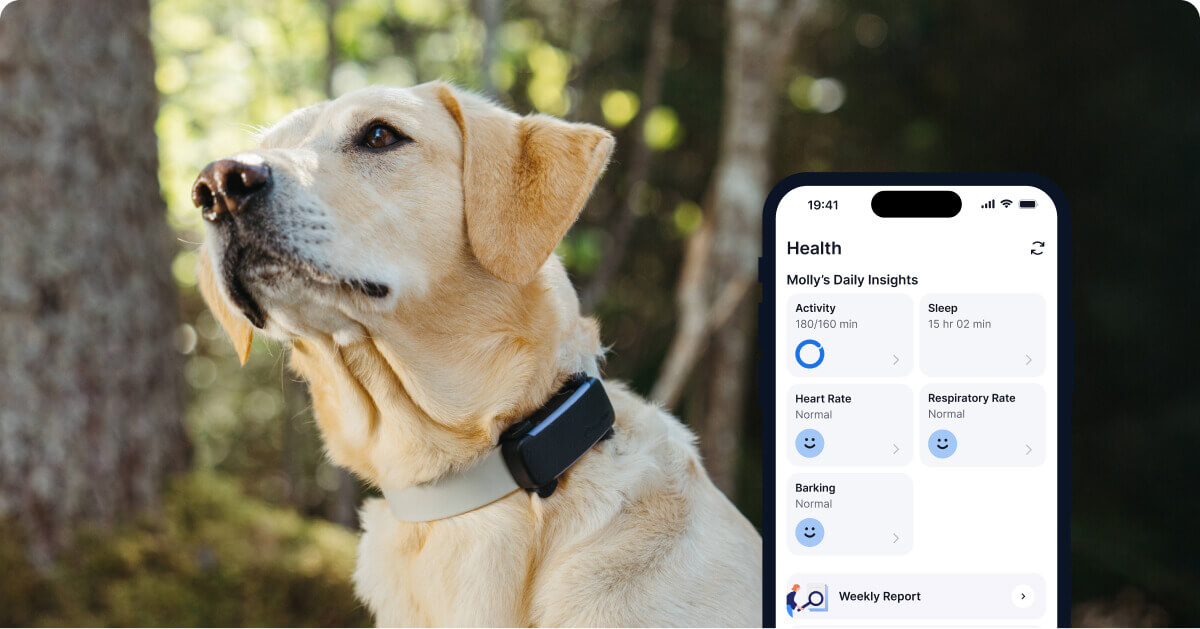
With a little vigilance, you’ll be able to take a more proactive role in your buddy’s health – and keep them at their happiest and most well-rested.
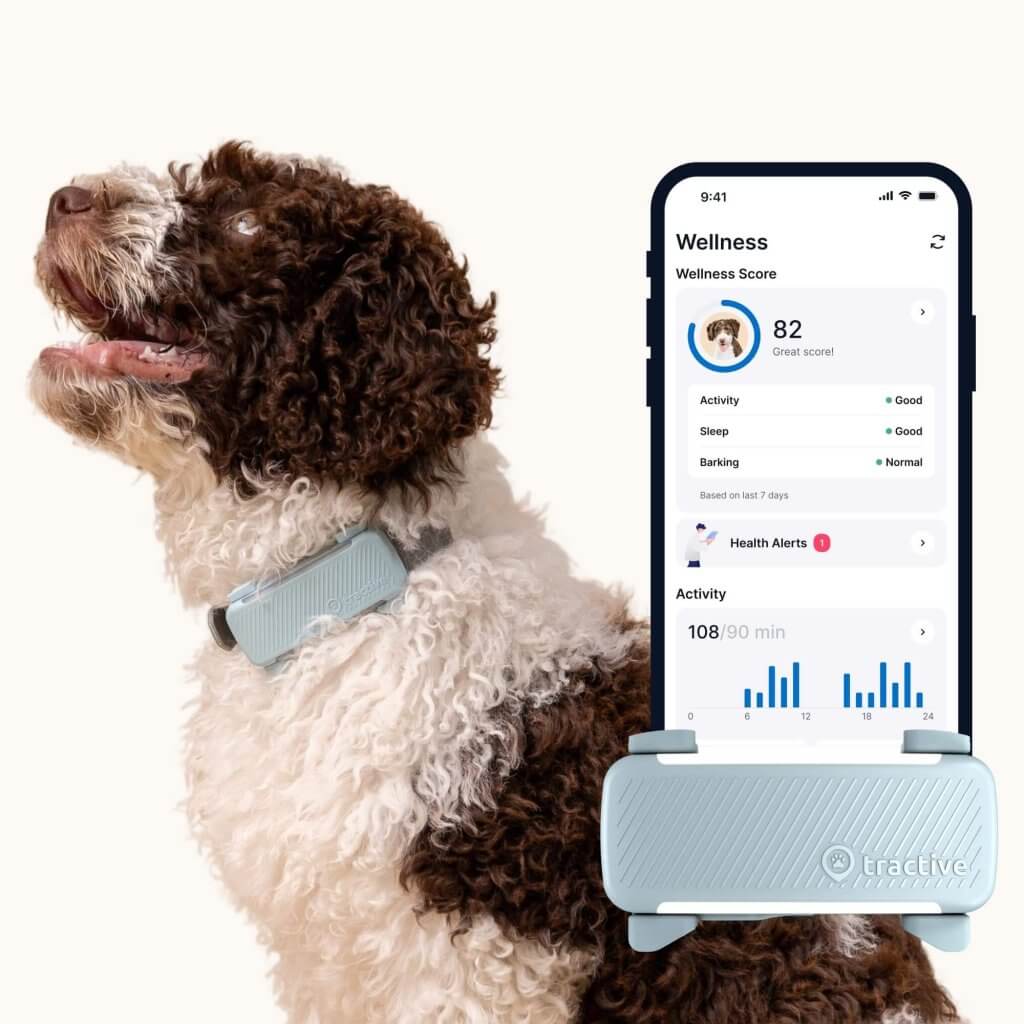
Get health alerts for your dog
Our pups can’t always tell us if something’s wrong. But if their tracker detects unusual changes in their routine, you’ll get an alert, helping you catch potential issues early.
And if you’ve liked this post, share it with a friend or a loved one – and let’s help build a safer, kinder world for our furry friends together.



